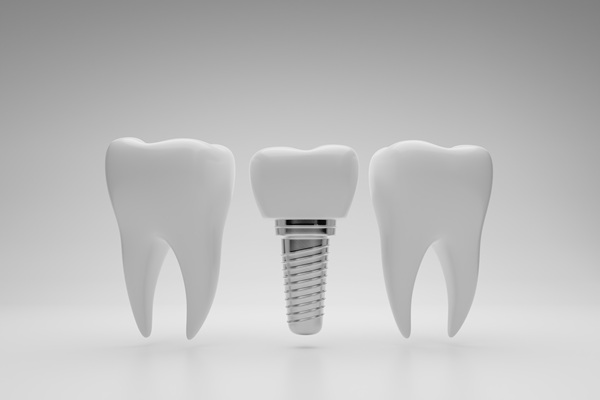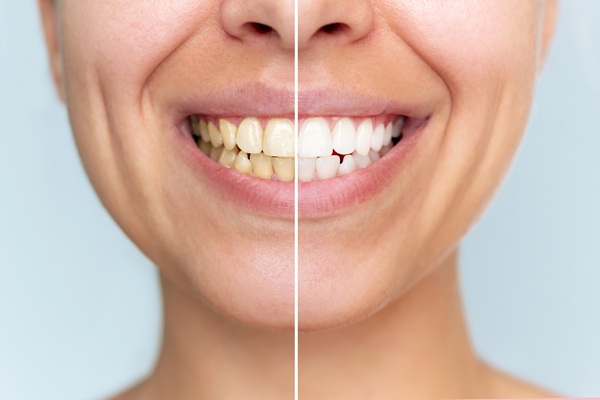5 Common Issues With Dental Crowns and How to Fix Them

Dental crowns are an essential restorative treatment for patients who need to protect or strengthen a damaged tooth. However, like any dental restoration, crowns can encounter issues over time. Understanding these common issues and how to address them can help ensure a longer-lasting and more comfortable restoration.
1. Poor fit and discomfort
One of the most common problems with dental crowns is an improper fit. A crown not fitting snugly over the prepared tooth can cause discomfort, sensitivity, or further damage. If a dental crown feels too tight or loose, it can cause pain when chewing or may cause gum irritation.
Solution: If a patient experiences discomfort, it is important to schedule a follow-up appointment. The dentist can assess the crown's fit and adjust it to ensure it sits properly. A new impression may be taken to ensure the crown fits better if necessary.
2. Crown damage or chipping
While dental crowns are durable, they can still chip or crack under pressure. This is particularly true for porcelain crowns, which, while aesthetically pleasing, can be more fragile than other materials like metal or ceramic.
Solution: Depending on the extent of the damage, we may repair a crown without replacing it. For minor chips, the dentist may be able to smooth and reshape the crown. In more severe cases, the crown may need replacing to restore its integrity and appearance.
3. Tooth decay beneath the crown
Over time, the seal between the dental crown and the tooth it covers can break down. When this happens, bacteria can seep beneath the crown, potentially leading to tooth decay or an infection in the underlying tooth.
Solution: If tooth decay is under the crown, the dentist may need to remove the crown to examine the tooth and clean out any decay. In some cases, the underlying tooth may require a filling or additional treatment before the dentist places the new crown.
4. Gum irritation or recession
Sometimes, a dental crown can cause gum irritation or recession around the area where it meets the tooth. This can happen due to a poorly fitting crown or because the material used in the crown is irritating the gum tissue.
Solution: A dentist can assess the situation to determine if the crown needs to be adjusted or replaced. Special treatments may sometimes be necessary to help heal the gums and prevent further recession. Switching to a more biocompatible material, such as porcelain, may also help reduce irritation.
5. Misalignment and bite issues
A dental crown not properly aligned with the surrounding teeth can cause misalignment issues, affecting the patient's bite. This can lead to difficulty chewing, jaw discomfort, and even long-term damage to other teeth.
Solution: A dentist can adjust the crown's position if a patient experiences bite problems after getting a dental crown. This may involve reshaping the crown or creating a new one that fits more comfortably within the patient's bite.
Get started today
By addressing these common dental crown issues promptly, patients can maintain optimal oral health and enjoy the full benefits of their restoration. Regular dental checkups are key to identifying problems early and preventing complications. For more information or to schedule a consultation, call or visit Sun Valley Dental Care.
To schedule a consultation, request an appointment on our website at https://sunvalleydentalcare.com or call Sun Valley Dental Care at (619) 413-1121 for an appointment in our El Cajon office.
Check out what others are saying about our dental services on Yelp: Dental Crowns and Dental Bridges in El Cajon, CA.
Recent Posts
Usually, patients can expect a dental crown to last around five to 15 years. But the life of a dental crown might depend on how much wear and tear the restoration undergoes. Plus, avoiding habits like clenching the teeth or chewing hard objects is advisable. That can extend the life span of the crown. Keep…
If you are dealing with a damaged tooth, dental crowns may be a viable solution. These tooth coverings help restore a damaged tooth for a functional and healthy smile. While a crown is one of the most common types of dental work, it still may not be for everyone. It can only be used to…
Although a dental crown is essentially a false tooth, dentists have ways to ensure that the crown looks as natural as real teeth. In most cases, dental crowns look natural due to the talent of the particular dentist. Once a dental crown is placed upon an original tooth, it is usually difficult to distinguish between…
When deciding between two popular tooth replacement options, such as dental bridges or dental implants, consulting a dentist is key. Bridges have long been a trusted solution, while implants are modern and innovative. However, when recommending an option, a dentist will consider factors like oral health, personal preferences, and lifestyle needs.Dental bridges are the traditional…


